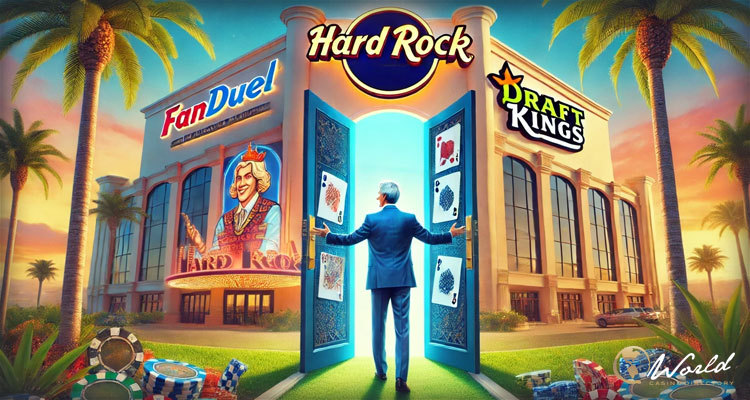Florida’s sports betting environment may soon undergo significant changes as Hard Rock International, currently holding exclusive rights in the state, signals openness to forming partnerships with notable commercial sportsbooks. This shift could end Hard Rock’s monopoly and introduce more players into the market.
Exploring new partnerships:
During the Global Gaming Expo in Las Vegas, Jim Allen, Chairman of Hard Rock International and CEO of Seminole Gaming, discussed the evolving sports betting landscape in Florida. In an interview with CNBC, Allen revealed that Hard Rock is considering strategic alliances with major sportsbook operators, specifically mentioning FanDuel and DraftKings. “I would say whether it’s FanDuel or whether it’s DraftKings, we’ve actually developed a great relationship with them,” Allen stated, highlighting a shift from previous competitive stances to a more collaborative approach, as reported by CNBC.
Allen’s comments reflect a significant potential shift in strategy for Hard Rock, which currently enjoys exclusive rights to sports betting in Florida thanks to a tribal gaming compact. Despite past resistance from competitors who failed to legalize sports betting in the state in 2021, Allen acknowledges the mutual benefits of collaboration. “We do recognize that long term, some type of strategic relationship with some of the brands that really have marquee value could be helpful to both of us, and we are receptive to those conversations,” he noted.
Florida presents a lucrative opportunity for sports betting operators due to its large population, which surpasses that of New York, and its array of over 20 professional and Division 1 college sports teams. Hard Rock’s current monopoly offers a unique advantage, but the introduction of renowned brands like FanDuel and DraftKings could diversify the market, potentially increasing overall engagement and revenue.
Recent developments and industry impact:
The backdrop to these discussions is the recent expansion at Seminole Hard Rock, where sports betting operations were launched in December across six locations in Florida. This move was touted as a pivotal development in Florida’s gaming history, signaling the tribe’s readiness to expand its market presence. Allen’s openness to partnerships aligns with comments from FanDuel CEO Amy Howe, who has identified Florida as a key target in her company’s expansion strategy, emphasizing its importance alongside California and New York.
While no formal agreements have been made, the discussions between Hard Rock and potential partners like FanDuel and DraftKings could lead to a dynamic shift in Florida’s sports betting sector. The potential integration of these major operators into the Florida market could catalyze a more competitive and vibrant betting scene, beneficial for consumers and the state’s tax revenue alike.
By potentially ending its monopoly and welcoming new competitors, Hard Rock may not only enhance its own market position but also contribute to a more diverse and robust gaming environment in Florida.



